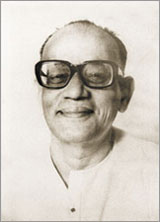A Quote by John Donne
I call not that virginity a virtue, which resideth onely in the bodies integrity; much less if it be with a purpose of perpetually keeping it: for then it is a most inhumane vice. - But I call that Virginity a virtue which is willing and desirous to yield it self upon honest and lawfull terms, when just reason requireth; and until then, is kept with a modest chastity of body and mind.
Related Quotes
It is not politic in the commonwealth of nature to preserve virginity. Loss of virginity is rational increase, and there was never virgin got till virginity was first lost. That you were made of is metal to make virgins. Virginity, by being once lost, may be ten times found: by being ever kept, it is ever lost. ’Tis too cold a companion: away with ’t!
If what was said in the Ethics is true, that the happy life is the life according to virtue lived without impediment, and that virtue is a mean, then the life which is in a mean, and in a mean attainable by every one, must be the best. And the same principles of virtue and vice are characteristic of cities and of constitutions; for the constitution is in a figure the life of the city.
The virtue of Marcus Aurelius Antoninus was of a severer and more laborious kind. It was the well-earned harvest of many a learned conference, of many a patient lecture, and many a midnight lucubration. At the age of twelve years, he embraced the rigid system of the Stoics, which taught him to submit his body to his mind, his passions to his reason; to consider virtue as the only good, vice as the only evil, all things external as things indifferent.
If a man of good natural disposition acquires Intelligence [as a whole], then he excels in conduct, and the disposition which previously only resembled Virtue, will now be Virtue in the true sense. Hence just as with the faculty of forming opinions [the calculative faculty] there are two qualities, Cleverness and Prudence, so also in the moral part of the soul there are two qualities, natural virtue and true Virtue; and true Virtue cannot exist without Prudence.




































